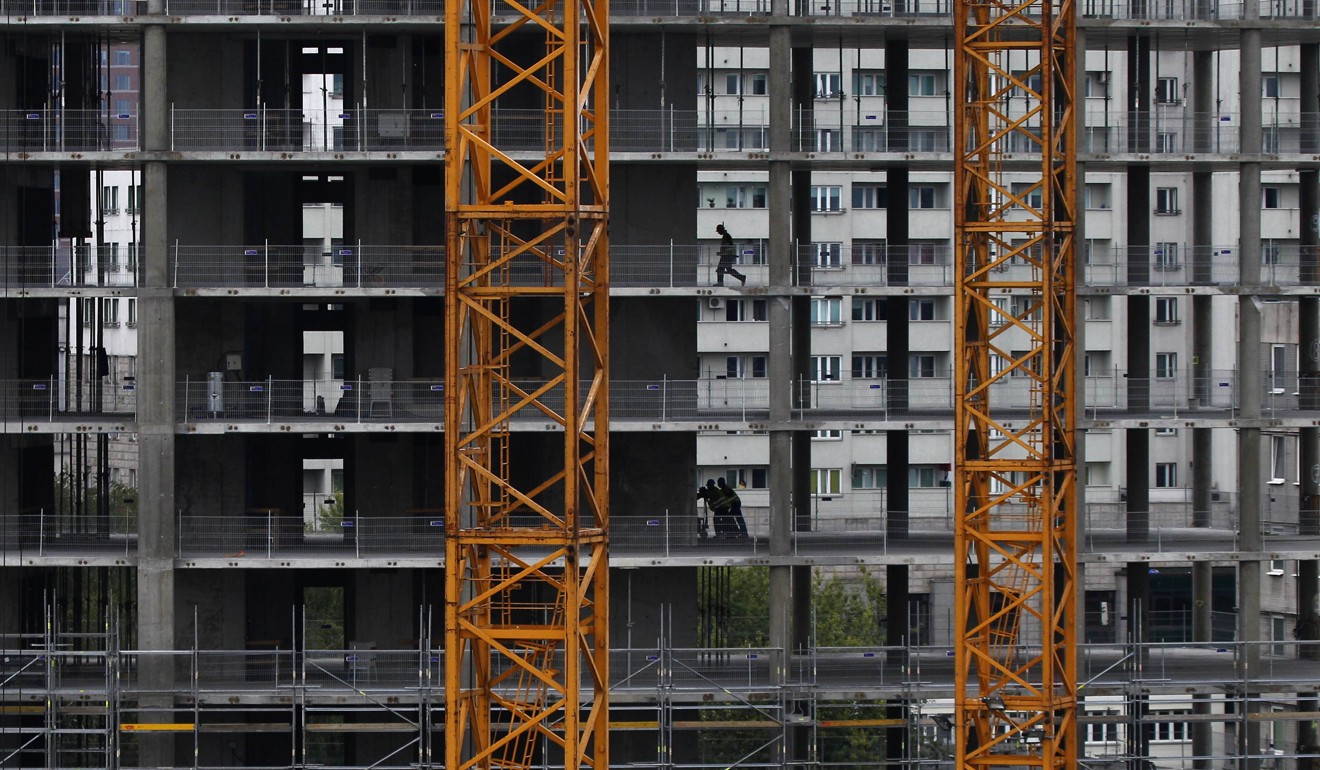Singaporean real estate investors are leading the Asian charge deeper into Europe as Chinese firms lie low
- While China’s capital controls have dampened outbound investment, Singaporean investment firms are venturing beyond London and Paris in Europe, with acquisitions of property assets in Poland and Hungary. South Korean investors are following suit

Last Tuesday, the real estate arm of Singapore Press Holdings (SPH), one of Asia’s leading media companies, announced that it had acquired £134 million (US$174 million) worth of student housing assets in three cities in Britain – Southampton, Sheffield and Leeds – in a deal that increases the size of its United Kingdom university accommodation portfolio to more than 5,000 beds in 10 cities, making SPH one of the leading players in the popular asset class.
The transaction is the latest in a string of major cross-border acquisitions by Asian property investors who were the largest net exporters of capital globally last year, with nearly US$18 billion more in inter-regional purchases than sales, according to a report published by Jones Lang LaSalle (JLL), a real estate adviser, last month.
The dominance of Asia in outbound capital flows is remarkable in view of the sharp decline in investment by mainland Chinese companies – who as recently as 2017 were the largest cross-border purchasers of property globally – due to Beijing’s imposition of tighter capital controls. According to a separate report published last month by CBRE, another real estate adviser, mainland investors became net sellers of global property in the second half of last year, disposing of US$300 million of assets.
The plunge in Chinese outbound investment – down a whopping 84 per cent year-on-year last year to US$4.6 billion, compared with an average of nearly US$20 billion between 2014 and 2017 – was offset by a surge in foreign purchases by Singaporean investors, who acquired US$20.7 billion of global commercial real estate assets last year, an annual rise of 30 per cent, according to JLL. By country, Singapore was the leading source of cross-border investment in 2018. South Korean property investors also spent more abroad, while Hong Kong buyers retrenched, despite remaining one of the main sources of outbound investment.
While America’s commercial real estate market saw the biggest increase in overall transaction volumes, Europe was the main beneficiary of cross-border investment, pulling in more than US$80 billion of foreign capital last year, compared with US$44 billion in the Americas and US$15 billion across the Asia-Pacific region, JLL notes. Although global property funds – investors who raise capital from multiple regions, with less than 70 per cent of the funds coming from a particular country – were the most active buyers in Europe, Asian companies were the second-biggest group of investors, JLL’s data shows.
What is more, as SPH’s UK buying spree reveals, Asian investors are venturing beyond London – the preferred metropolitan area for first-time buyers due to the liquidity, transparency and safe-haven appeal of the capital’s property market – for opportunities to deploy capital. While London was the leading recipient of cross-border investment last year, Paris, Frankfurt, Munich, Berlin and Warsaw all figured among the top 10 destinations for foreign investment, data from JLL reveals.
Continental Europe’s real estate markets have become the battleground for cross-border capital, partly because of the attraction of a large number of well-established gateway cities across the region, but also because of the increasing popularity of higher-yielding asset classes, such as logistics and hotels.
While Asian buyers continue to undertake single-asset transactions – especially in Europe’s highly liquid “core” office markets – large platform deals are becoming more prevalent as investors change their investment strategies to facilitate their expansion across the continent.

In June 2017, China Investment Corporation, the country’s sovereign wealth fund, purchased Logicor, a pan-European logistics company present in 17 countries, from US private equity fund Blackstone for €12.2 billion (US$13.7 billion) in one of the largest European property transactions on record. Since then, there have been several large platform deals involving deep-pocketed Asian investors.
Among the most high-profile transactions are a string of investments by GIC, Singapore’s sovereign wealth fund, which was the largest non-European private equity investor in Europe in the first half of last year, according to Pitchbook, a data provider.
Last month, GIC bought a 25 per cent stake in CitizenM, a Netherlands-based hotel developer and operator with a portfolio of affordable luxury hotels across Europe, Asia and the Americas. This followed the purchase in February 2018 of a 55 per cent stake in AccorInvest – the hotel property portfolio of France’s AccorHotels, Europe’s largest hotel group – for €4.4 billion by a consortium led by GIC and Saudi Arabia’s Public Investment Fund. GIC also acquired P3, another large pan-European logistics platform, from US private equity fund TPG in November 2016 for €2.4 billion.

GIC’s platform transactions are part of a trend in Europe’s fiercely competitive real estate markets in which foreign investors buy into companies and partner with local developers and operators to gain a foothold in the continent’s fragmented – and often opaque – property markets. Another report published by CBRE in January noted that “after initially focusing on trophy assets in gateway markets [Asian] buyers are setting up local offices to facilitate further expansion”.
The next platform deals may be in central and eastern Europe.
In a sign of how deep into continental Europe Asian investors are willing to venture to achieve higher returns, South Korean institutional investors bought several office buildings in Prague and Warsaw earlier this year. Meanwhile, Mapletree Investments, the property arm of Temasek Holdings, Singapore’s state-backed investment firm, bought logistics assets in Poland and Hungary late last year as part of a larger portfolio deal.
For Asian real estate investors seeking exposure to Europe, the days of focusing solely on prestigious office buildings in London are long gone.
Nicholas Spiro is a partner at Lauressa Advisory